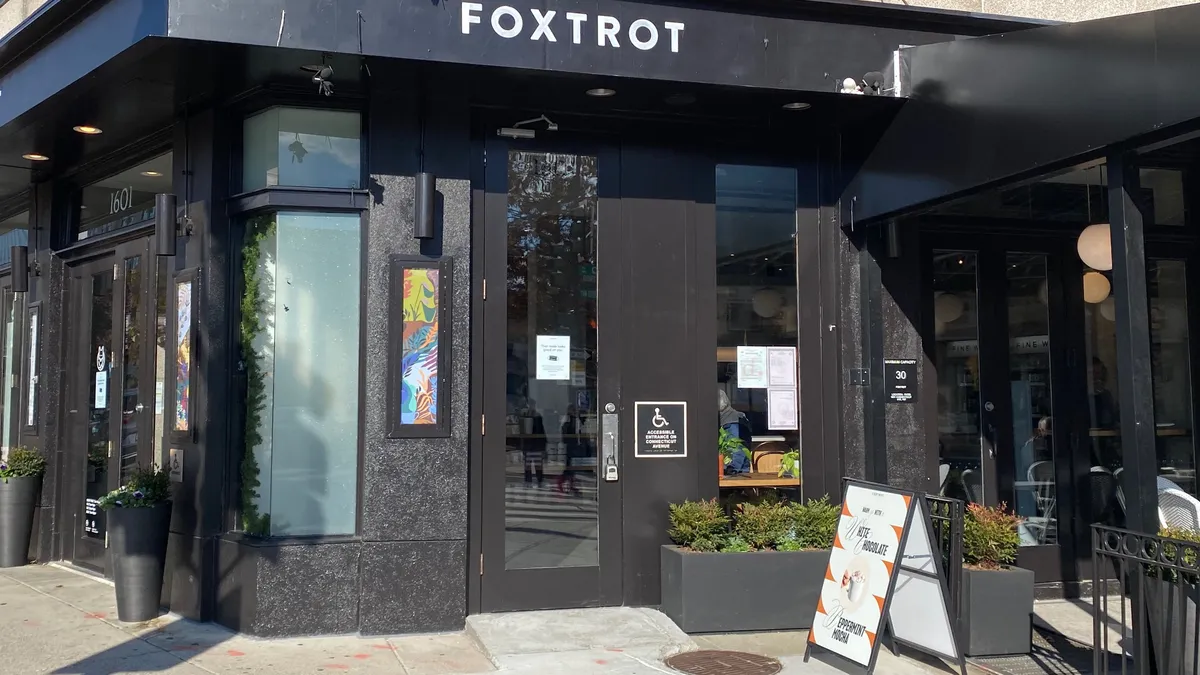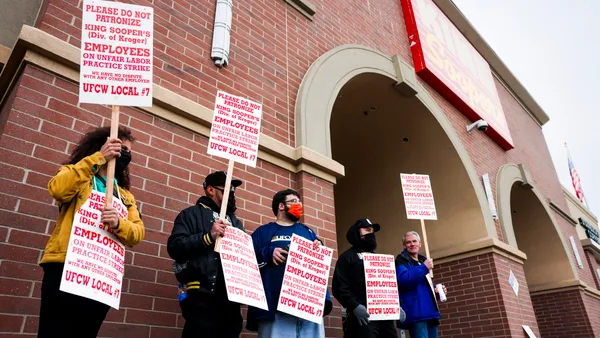Dive Brief:
- The assets of Foxtrot Market, the upscale convenience store retailer that unexpectedly ceased operations last month, will be featured in a foreclosure sale this Friday, according to public notices filed on May 3 and 6.
- According to the notices, the foreclosure sale will include “substantially all of the assets” of Foxtrot, including inventory, intellectual property, accounts, chattel paper, documents, furniture, fixtures and equipment, general intangibles and goods.
- The notice did not mention Dom’s Kitchen & Market, the grocery chain Foxtrot merged with late last year and that also shut down last month.
Dive Insight:
Although Outfox Hospitality, the parent company of Foxtrot and Dom’s, has yet to file for bankruptcy, the notices indicate a filing is on the horizon. In the notices, Foxtrot is referred to as the debtor, with JPMorgan Chase Bank as its secured creditor.
The May 10 sale of Foxtrot’s assets will be conducted by global law firm DLA Piper, which is representing JPMorgan. The sale will take place via a Microsoft Teams video conference at 1 p.m. Eastern time. According to the notice, the foreclosure sale “may be canceled or continued from time to time at the direction of JPMorgan.”
Representatives from JPMorgan did not respond by press time when reached to comment on the foreclosure sale.
Both Foxtrot and Dom’s suddenly shuttered operations on April 23, just a few months after they merged. The closure impacted all 33 Foxtrot stores across Chicago; Dallas; Austin, Texas; and Washington, D.C., and two Dom’s grocery stores in Chicago.
Just a day later, Foxtrot, Dom’s and Outfox were sued for violating the Worker Adjustment and Retraining Notification (WARN) Act for allegedly failing to give its employees at least 60 days’ notice of the mass layoff.
According to the Illinois WARN database, Foxtrot and Dom’s filed WARN notices on April 24, the same day of the lawsuit. Those notices stated that 66 Foxtrot and 281 Dom’s employees would lose their positions in the state.
Chicago-based Foxtrot, which expanded rapidly over the past few years, sold made-to-order meals, smoothies and coffee, and featured many local and niche brands in its stores. Its abrupt termination highlights the difficulties upscale food retailers have faced in recent years.














